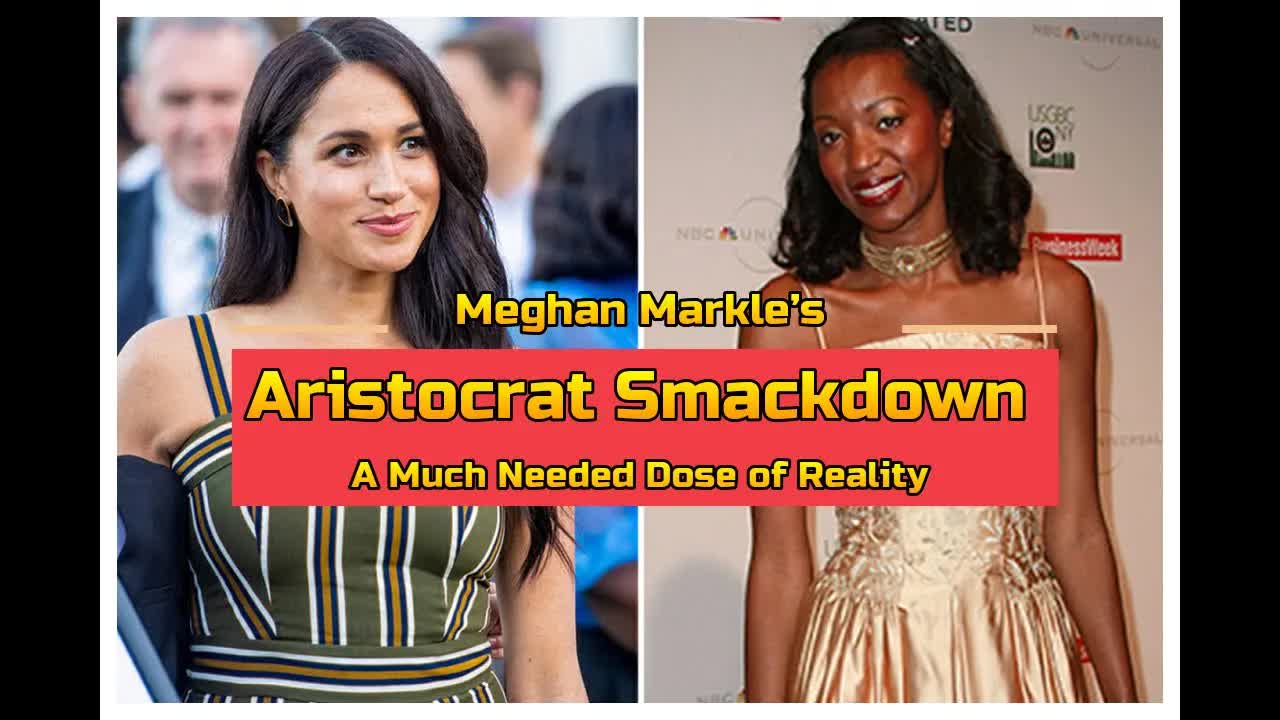In a bold and unfiltered statement, former Californian figure skater Rose Atkins Hulse has publicly criticized Meghan Markle, the Duchess of Sussex, for her recent choices.
During an interview with Tatler, Hulse asserted that Markle made a significant error in judgment, particularly regarding her departure from royal duties and her subsequent ventures in Hollywood.
This frank commentary has ignited discussions about the responsibilities that come with fame and the impact of personal decisions on public figures.
Atkins Hulse, who is married to aristocrat George Holst and has roots in Santa Monica, California, understands the pressures of public life, having experienced them herself.
She married just before Markle’s wedding to Prince Harry and has since carved out a successful career as a CEO and founder.
Her insights resonate deeply, especially as she embodies the struggles faced by many women of color in high-profile positions.
In her interview, Hulse expressed disappointment in Markle, stating, “I don’t think she was willing to be a part of the royal way of life.” Instead of embracing her role, Markle opted for a path focused on self-promotion, which Hulse believes undermined the potential for positive change as a member of the royal family.
She emphasized that Markle had a unique opportunity to serve as a role model, demonstrating that people can rise above societal barriers regardless of their background.
Hulse’s criticism doesn’t stop there.
She pointedly remarked on Markle’s decision to partner with Netflix, questioning the wisdom of abandoning royal duties for commercial opportunities.
“You just made a deal to go do shows with Netflix, but you were a part of the royal family, girl!
What are you thinking?” Hulse exclaimed, highlighting the stark contrast between the responsibilities of royalty and the allure of celebrity.
The dialogue initiated by Hulse raises essential questions about authenticity and the true meaning of influence.
While Markle has often positioned herself as a champion for social issues, Hulse argues that her actions have been more self-serving than altruistic.
“Self-promotion is not the way to make the world better,” she stated, advocating for a more community-oriented approach.
Hulse’s perspective is particularly poignant given her own journey through the entertainment industry.
Having faced her share of challenges, she understands the importance of hard work and perseverance.
“When I opened my mouth, it was always no,” she recalled, emphasizing her determination to turn rejection into motivation.
This contrasts sharply with Markle’s perceived entitlement, which Hulse suggests has hindered her ability to connect with her audience authentically.
Moreover, Hulse’s success story is a testament to resilience.
From her early aspirations of becoming an actress to founding Screen Hits TV, she has navigated the complexities of the industry with grace.
“I never wanted to start a company; I just wanted to be successful,” she explained, shedding light on her journey and the lessons learned along the way.
Her experiences echo the sentiments of many individuals who have felt marginalized in their pursuit of success.
The stark differences between Hulse and Markle’s approaches to their careers and public personas are worth noting.
Hulse’s humility and willingness to learn from setbacks stand in contrast to what some perceive as Markle’s tendency to evade accountability.
Hulse’s critique serves as a reminder that true leadership often requires acknowledging one’s responsibilities and working diligently for the greater good.
As discussions around race and privilege continue to evolve, Hulse’s reflections on her experiences highlight the nuances of navigating these complex dynamics.
She candidly addressed the unconscious biases she encountered, suggesting that systemic issues still permeate various industries.
Yet, rather than allowing these challenges to deter her, Hulse embraced them as opportunities for growth.
While Markle’s narrative often revolves around her struggles with racism and discrimination, Hulse presents a different perspective, one that emphasizes hard work and dedication over victimhood.
This contrast invites a broader conversation about the narratives we construct around success and the responsibilities that accompany it.
In an era where authenticity is increasingly valued, Hulse’s straightforward critique of Markle resonates with many who seek genuine leadership.
Her call for Markle to recognize the weight of her choices and the influence she wields is a powerful reminder of the potential impact public figures can have on society.
Ultimately, Hulse’s remarks serve as a rallying cry for accountability and authenticity in public life.
As she continues to pave her path in the business world, her insights remind us that success is not merely about personal gain but also about uplifting others and contributing positively to the community.










